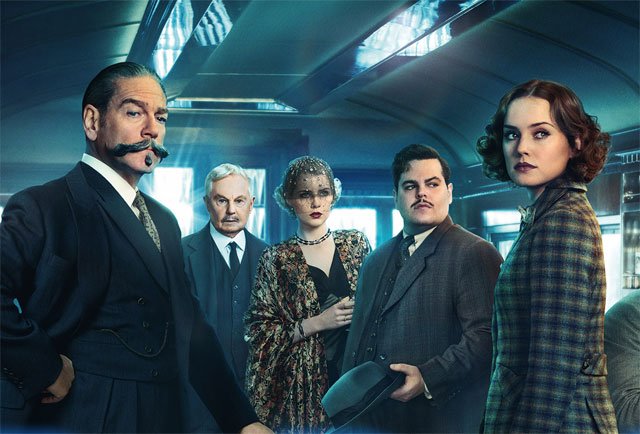‘Murder on the Orient Express’ charges full steam ahead
Of the great detectives of fiction, Hercule Poirot is not as well remembered in the modern day as his Victorian counterpart, Sherlock Holmes. Perhaps this comes from the fact that Holmes is always portrayed with a dash of mad genius, a misanthrope bored with reality, and a recluse constantly seeking stimulation. Agatha Christie’s Belgian hero comes across as fussy at best in comparison. And this is what Kenneth Branagh’s Murder on the Orient Express, an interpretation of the 1934 novel of the same name, brings to the table: a dash of mad genius. So, let us use our little grey cells and get into it.
I did not come into this movie with high expectations. As a Christie fan, I’ve read the original book and seen a few earlier adaptations, so I walked in under the impression that this would either be a murder mystery with no mystery, or an adaptation completely diverted from the source material. I can honestly say that I’ve rarely been so pleasantly surprised. I don’t think I’ve ever found an adaptation before that outstrips its source material, but after watching this film, I’d argue that Branagh does Poirot better than Christie ever did.
Branagh, who stars as well as directs in this movie, plays a fresh take on Poirot with a blunt sense of humor and an intensity not seen in previous adaptations or even in the original novels. From insisting on his morning eggs being perfectly matched to accidentally stepping in manure with one foot and deliberately stepping in it with the other to match the balance of his stride, he nails the fussiness of the original character. He takes it further to what could best be described as obsessive-compulsive disorder, tying one of the character’s most memorable traits with his deductive abilities. To quote the man himself, he sees the world “only as it should be,” and throughout the film, this obsession with order and logic comes to haunt Poirot.
Despite the reimagining, this is still an adaptation of a story that is almost a century old, so how does the film serve as such? In another rare point, the film stays true to the original novel, following the source material very closely. The only thing close to a negative point for this film means that if you are familiar with the original, you won’t find many surprises. But at the same time, the film is entirely accessible to newcomers, meaning that it’s the best introduction to Poirot one could ask for.
If one is looking for an action film, though, this may not necessarily be for you. The action in this movie is rare and when it does happen, it is brief. The film instead focuses on the careful interplay between Poirot and the rest of the cast. Johnny Depp plays Samuel Ratchett with a subdued tone that is truly rare for the normally flamboyant former Pirate of the Caribbean. Ratchett comes off, not sympathetic by any means, but also not a sneering bond villain. Rather he is just a common crook, giving him a more human portrayal than is found in most adaptations.
Where the film truly outshines the source though, besides the portrayal of Poirot himself, is the ending, which I shall not spoil for those who don’t know. While it remains the same overall, the way it is handled is perfection. I left the theater that evening with a hollow feeling, the ending did not feel like a victory, and that is a good thing. It served as a stark reminder of the theme of the film.
There are no winners in murder, only losers
Five out of Five stars
A must see.







